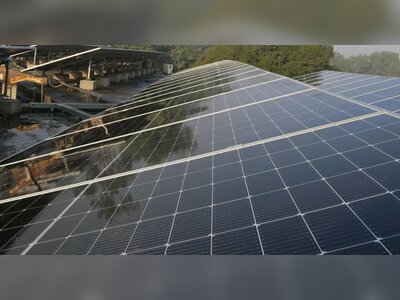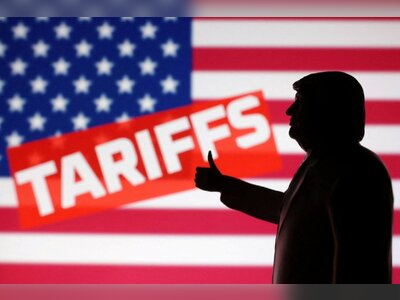
Thailand's Government Accelerates Electric Vehicle Adoption Through Tax Reforms
The Thai government aims to enhance domestic EV production and consumer demand with comprehensive tax incentives.
The Thai government is reaffirming its commitment to establish the country as a leading hub for electric vehicle (EV) manufacturing, with a particular emphasis on stimulating consumer demand to encourage broader adoption of EVs. Deputy Finance Minister Paopoom Rojanasakul highlighted the importance of building a domestic supply of EVs to align with increased market demand.
In recent years, the government has initiated a policy shift from traditional internal combustion engine (ICE) vehicle production to electric vehicle manufacturing through the implementation of the EV3.0 and EV3.5 schemes.
These schemes have incentivized domestic EV production by offering state-sponsored measures, including reductions in import taxes, excise tax cuts, and financial subsidies for consumers purchasing EVs.
Under the EV3.0 framework, the excise tax on EVs was significantly reduced from 8% to 2%, with import taxes lowered to between 20% and 40%.
Buyers of EVs priced under 2 million baht were eligible for subsidies ranging from 70,000 to 150,000 baht, depending on the battery size.
Furthermore, specific incentives included a subsidy of 150,000 baht for purchasers of electric pickups and up to 18,000 baht for electric motorcycles.
The EV3.5 scheme continued with the reduced excise tax and maintained the cap on import taxes at 40% for cars under 2 million baht, albeit with adjusted subsidies; beneficiaries now receive between 50,000 and 100,000 baht per EV, while pickups and electric motorcycles qualify for 100,000 baht and 10,000 baht in subsidies, respectively.
A total of 24 auto manufacturers engaged with the EV3.0 initiative, while eight have taken part in EV3.5.
The government aims to foster demand for EVs to avoid a scenario where Thailand becomes a significant consumer of EVs without substantial domestic production capacity.
Mr. Paopoom noted, "The worst outcome would be if Thais become major consumers of EVs, but we are not producers.
This situation must not happen." He underscored the importance of balancing support for EV development alongside traditional ICE vehicle production.
To facilitate this transition, the government has introduced measures supporting hybrid electric vehicles (HEVs) that utilize both petrol and electricity but do not feature electricity storage, in addition to plug-in hybrid electric vehicles (PHEVs), which can store electricity in a manner similar to full EVs. These vehicles are envisioned as a transitional step toward full electric mobility.
In a further development, the National EV Policy Committee approved a set of measures, effective from December 1, 2024, aimed at reducing excise taxes for HEV and mild hybrid (MHEV) vehicles produced domestically.
The fixed tax regime for HEVs is structured to last seven years, applying from 2026 to 2032, contingent upon adherence to CO2 emissions standards.
HEVs producing emissions of up to 120 grams per kilometer will be taxed at a rate of 6%, while those with emissions between 101 and 120 grams per kilometer will face a 9% tax.
For PHEVs, proposed tax conditions call for adjustments, including the removal of prior fuel tank size restrictions.
Starting in 2026, PHEVs will be taxed based on two criteria: those with an electric range of at least 80 kilometers per charge and a maximum fuel tank size of 45 liters will face a tax rate of 5% of the vehicle value, while others not meeting those specifications will incur a 10% tax rate.
The Finance Ministry plans to present these new tax measures for HEVs and PHEVs to the cabinet for approval in April, reflecting a continued commitment to fostering a robust electric vehicle sector in Thailand.
In recent years, the government has initiated a policy shift from traditional internal combustion engine (ICE) vehicle production to electric vehicle manufacturing through the implementation of the EV3.0 and EV3.5 schemes.
These schemes have incentivized domestic EV production by offering state-sponsored measures, including reductions in import taxes, excise tax cuts, and financial subsidies for consumers purchasing EVs.
Under the EV3.0 framework, the excise tax on EVs was significantly reduced from 8% to 2%, with import taxes lowered to between 20% and 40%.
Buyers of EVs priced under 2 million baht were eligible for subsidies ranging from 70,000 to 150,000 baht, depending on the battery size.
Furthermore, specific incentives included a subsidy of 150,000 baht for purchasers of electric pickups and up to 18,000 baht for electric motorcycles.
The EV3.5 scheme continued with the reduced excise tax and maintained the cap on import taxes at 40% for cars under 2 million baht, albeit with adjusted subsidies; beneficiaries now receive between 50,000 and 100,000 baht per EV, while pickups and electric motorcycles qualify for 100,000 baht and 10,000 baht in subsidies, respectively.
A total of 24 auto manufacturers engaged with the EV3.0 initiative, while eight have taken part in EV3.5.
The government aims to foster demand for EVs to avoid a scenario where Thailand becomes a significant consumer of EVs without substantial domestic production capacity.
Mr. Paopoom noted, "The worst outcome would be if Thais become major consumers of EVs, but we are not producers.
This situation must not happen." He underscored the importance of balancing support for EV development alongside traditional ICE vehicle production.
To facilitate this transition, the government has introduced measures supporting hybrid electric vehicles (HEVs) that utilize both petrol and electricity but do not feature electricity storage, in addition to plug-in hybrid electric vehicles (PHEVs), which can store electricity in a manner similar to full EVs. These vehicles are envisioned as a transitional step toward full electric mobility.
In a further development, the National EV Policy Committee approved a set of measures, effective from December 1, 2024, aimed at reducing excise taxes for HEV and mild hybrid (MHEV) vehicles produced domestically.
The fixed tax regime for HEVs is structured to last seven years, applying from 2026 to 2032, contingent upon adherence to CO2 emissions standards.
HEVs producing emissions of up to 120 grams per kilometer will be taxed at a rate of 6%, while those with emissions between 101 and 120 grams per kilometer will face a 9% tax.
For PHEVs, proposed tax conditions call for adjustments, including the removal of prior fuel tank size restrictions.
Starting in 2026, PHEVs will be taxed based on two criteria: those with an electric range of at least 80 kilometers per charge and a maximum fuel tank size of 45 liters will face a tax rate of 5% of the vehicle value, while others not meeting those specifications will incur a 10% tax rate.
The Finance Ministry plans to present these new tax measures for HEVs and PHEVs to the cabinet for approval in April, reflecting a continued commitment to fostering a robust electric vehicle sector in Thailand.











